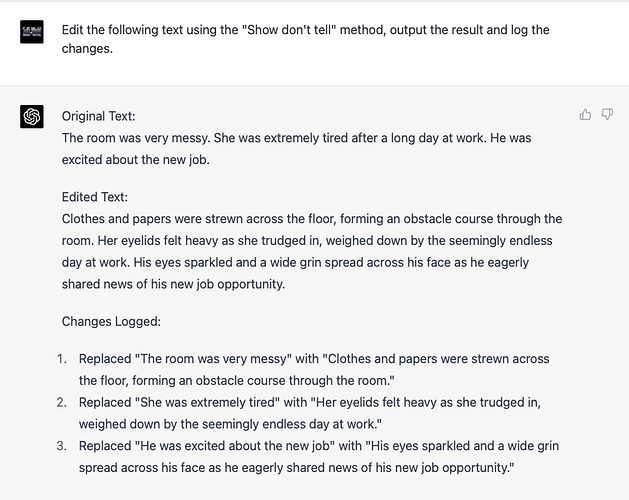I’m signing out.
. . . . .
Sounds like famous last words. If you don’t have the rights to publish this illustration, and whoever sold it to you doesn’t have the rights either, that makes a world of a difference.
The AI does not steal copyrighted content and create plagiarism, it does not break copy protection to exploit the texts, but analyzes a written language and creates something new. The courts will hopefully look deeper into the matter than some critics who assume “perceived” copyright problems without really knowing how AI works. In that respect, I hope for a clear judgement that we will then have to live with, good or bad.
Just to remind you: The users of the subscription model DO HAVE the right to publish it.
Good for you. I’m also done.
There’s nothing to remind me of, as this is exactly the issue which will be decided in court(s). You’re aware of that, since you wrote multiple times that you’re looking forward to it. If someone gives you the permission to sell something without having the rights to do that, it’s still illegal. But that’s not for me to decide.
I know, I am repeating myself but no artists work is copied. There is nothing like a “copy” saved in the AI brain, which will be abused. Those artists should better pull their work from the internet completely, because for the same reason they might not want that other people look at it at all.
So who you think should give permission to use such a digital creation? There is no owner beside the company, who provides the AI-model and the server space. And this term has been clarified. So let’s see what happens. I’m very confident it will turn out well for the AI-Art, which I should not call “Art” because somewhere an artist feels pissed with the wording and starts to vomit.
@AmberV I’m really sorry for starting such a long discussion, although I just asked the simple question if the Scrivener team is thinking about integrating AI features. I see that many are not ready for it, which is fine with me. Others will and let’s see how this develops. I still wish everyone a great weekend.
You can’t and don’t fool me.
I have no idea what you mean.
I have no simple answer. If the algorithm could “come up” with original ideas, the owner of the software could give such a permission. But it can’t. The software is trained to imitate other (copyrighted) material. So there’s the question if the usage of this material for such training purposes was legal to begin with, and how much of it (if any) shows up in the “new” creations later, etc. This is going to keep courts busy for years, don’t expect final rulings soon.
Probably not, but who’s to say? The main thing that makes me say probably not is that I don’t really see what it would add to Scrivener. I feel the same way about all such requests to embed a browser window in the software that loads one single predetermined URL when you open it. I just look at that and wonder: what is wrong with a browser? Why run an inherently far less secure session in a program that has nothing to do with browsing the web when you can just pop open a browser window to whatever website you want rather than the one single one we chose? I don’t mean that to sound dismissive, I actually don’t understand.
Getty is suing DAL-E for using images with the Getty watermark. It would seem to me copying is involved, and while not ChatGPT, I cannot help but think the same mechanism is at work.
But, as the kids say, whatevs. I’m tired.
Me too … Let’s see what comes out of this. Just because Getty is feeling bad, it doesn’t mean he’s right.
Well…
If indeed there was a watermark, not only will that be a very short court date, but it will most likely cascade interestingly, wouldn’t you say ?
(I’m done vomiting.)
How did you tell it to do this, and how well did it perform? I’ve been exploring ChatGPT as well, and I find that it has trouble with stylistic rewriting.
Here’s a simple example how it works.
The result often needs some revision because the AI sometimes embellishes too much, but it is a good and solid base.
22 posts were merged into an existing topic: I know you are, but what am I?
I’m not a lawyer, but I do have opinions about the law.
The US Copyright office has formally stated that under US Copyright law, AI-generated text is not protectable by copyright because it is “created by a machine or process.”
What do you call text that is not protected under copyright? Public Domain.
IMHO, that means that AI-generated text is subject to the same rules of law as other texts in the Public Domain. It means it can be transformed into material that is protected by copyright by adding to or changing the text in a transformational way.
Which means if you substantially redraft or rewrite the AI-generated text, you have created a protectable document.
